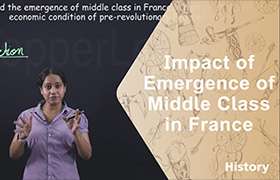CBSE Class 9 Answered
The reign of Robespierre i.e. the period from 1793 to 1794 is referred to as the Reign of Terror. He followed a policy of severe control and punishment. Anybody that seemed as an enemy of the republic to him – ex-nobles and clergy, members of other political parties, even members of his own party who did not agree with his methods – were arrested, imprisoned and then tried by a revolutionary tribunal. If the court found them ‘guilty’ they were beheaded. His government issued laws placing a maximum ceiling on wages and prices. Meat and bread were rationed. Peasants were forced to transport their grain to the cities and sell it at prices fixed by the government. The use of more expensive white flour was forbidden; all citizens were required to eat the pain d’égalité (equality bread), a loaf made of wholewheat. Equality was also sought to be practised through forms of speech and address. Instead of the traditional Monsieur (Sir) and Madame (Madam) all French men and women were henceforth Citoyen and Citoyenne (Citizen). Churches were shut down and their buildings converted into barracks or offices.
Because of Robespierre’s persuasion of such relentless policies even his supporters began to demand moderation. This resulted in him finally being convicted by a court in July 1794, arrested and on the next day sent to the guillotine.





